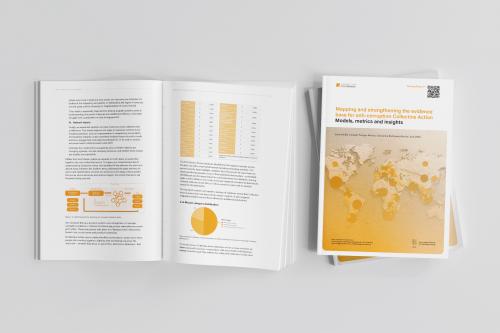Business Ombudsman institutions in Eastern Europe and Central Asia: taking stock and identifying good practices

A guest blog by Olga Savran, Manager of the OECD Anti-Corruption Network for Eastern Europe and Central Asia, and Elisabeth Danon, Legal Analyst, OECD Anti-Corruption Division.
This guest blog post explains a new initiative by the Organisation for Economic Co-operation and Development (OECD), European Bank for Reconstruction and Development (EBRD) and the Business Ombudsman Council of Ukraine to evaluate regional Business Ombudsman institutions and provide a platform to exchange experiences. Intended as a multi-stakeholder initiative to help resolve suspicions of misconduct in government dealings, the concept of the Business Ombudsman is similar to that of the High Level Reporting Mechanism (HLRM) supported by the OECD and Basel Institute on Governance’s Collective Action team.
In recent years, a growing number of Business Ombudsman institutions have emerged in Eastern Europe and Central Asia. Driven by strong demand from the private sector, these institutions are designed to supplement judicial and institutional responses to widespread corruption by investigating claims of abuse of businesses’ rights, resolving disputes and providing advocacy and/or advisory services.
Indeed, as weak governance continues to threaten the rights and legitimate interests of companies in the region, the Business Ombudsman can provide a protection that contributes to promoting private sector development.
A non-judicial way to resolve disputes
Business Ombudsman institutions in Eastern Europe and Central Asia present fundamental similarities to High Level Reporting Mechanisms (HLRMs) deployed in Argentina and Colombia, as both mechanisms offer a non-judicial way of resolving suspicions of misconduct in a government’s dealings.
However, unlike HLRMs, Business Ombudsman institutions do not rely on the involvement of high-level authorities. The lack of trust in such authorities in fact explains why the model has been flourishing in the region. Rather than resorting to high-level authorities, Eastern European and Central Asian Business Ombudsmans rely on their independence and professionalism, and their power to influence governments.
A flexible model to fit local contexts
Various models of the mechanism currently coexist in the region. In Ukraine and Kyrgyzstan, these were established with the assistance of international partners. In Georgia, Kazakhstan and Uzbekistan, they were created by national governments and businesses.
Whereas in some countries, Business Ombudsmans are part of the government, in others they are based in business chambers and appointed by the president. In two countries, they are independent bodies established by governments and business associations with the assistance of international partners. While stakeholders concur that independence, neutrality, accessibility, transparency, expertise and integrity are critical for ensuring the effectiveness of the institution, these elements can be ensured through different means and in different ways.
Exploring what works, exchanging experiences
In 2020, in light of the wide variety of existing systems, and given the growing interest of the mechanism in the region, the OECD Anti-Corruption Network for Eastern Europe and Central Asia (ACN), the EBRD and the Business Ombudsman Council of Ukraine, in consultation with the Council of Europe, launched an initiative to conduct an in-depth analysis of Business Ombudsman institutions in the region.
This unprecedented initiative aims to provide a platform to exchange experiences and information, and to develop good practices for countries aspiring to develop their own models.
The core analysis will be based on information and data collected through a survey administered to all Business Ombudsman institutions in Eastern Europe and Central Asia. The survey is composed of 50 questions, broken down in 10 categories:
- History of the Business Ombudsman
- Legal basis, mandate, responsibilities and powers
- Independence, accountability and integrity
- Financial and human resources
- Operational procedures
- Policy recommendations
- Results
- Addressing Covid-19
- Cooperation
- Comments and suggestions
The survey was rolled out in November 2020, following a launch webinar gathering the project coordinators and officials from several Business Ombudsman institutions across the regions. Initial results of the survey will be presented in May 2021.
Based on the collected data, a report will present the main findings of the survey, including the analysis of the existing models, examples of good practices and draft recommendations for further strengthening the institutions.
Learn more
- OECD (2020). Anti-corruption Reforms in Eastern Europe and Central Asia: Progress and Challenges, 2016-2019.
- About the Ukraine Business Ombudsman Council on the B20 Collective Action Hub (see also official BOC website)
- Learn more about the Ukrainian Network of Integrity and Compliance (UNIC), a successful Collective Action initiative established in 2017 with the support of the country’s Business Ombudsman Council, OECD and EBRD.



